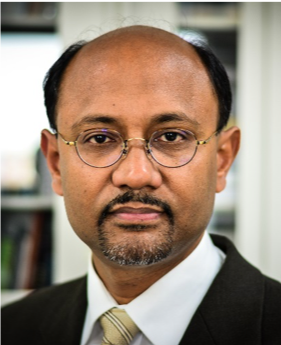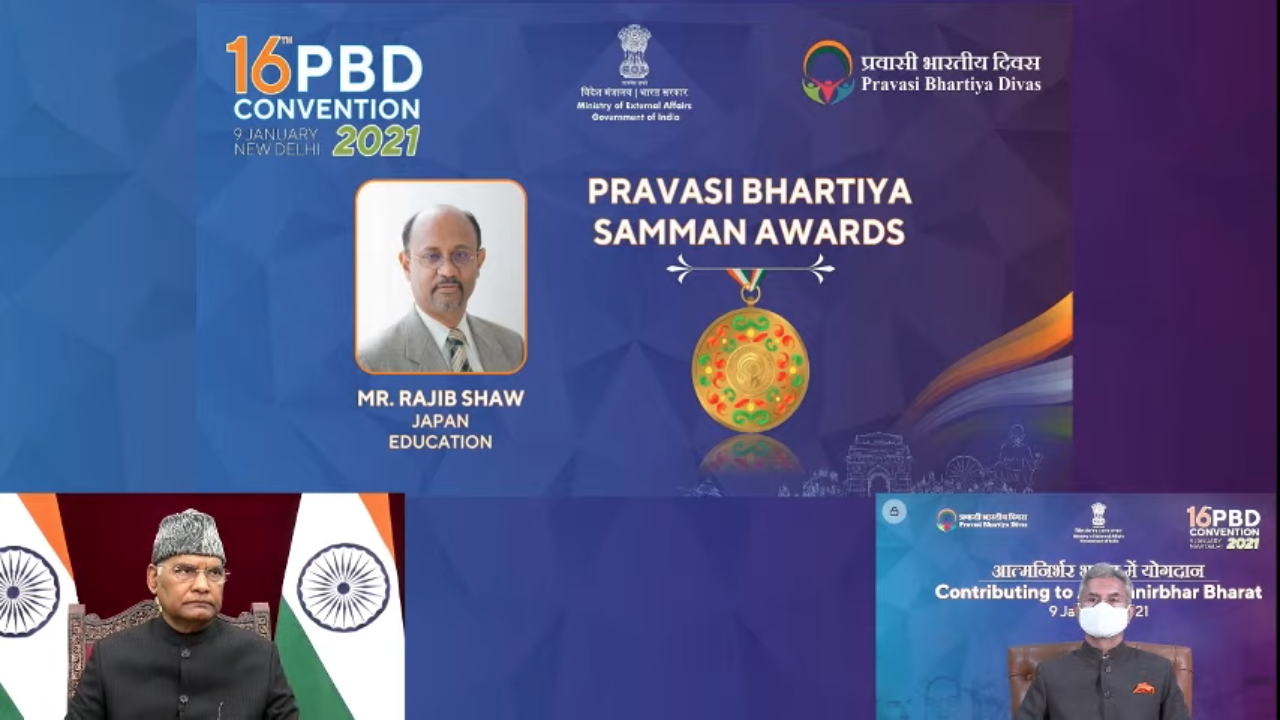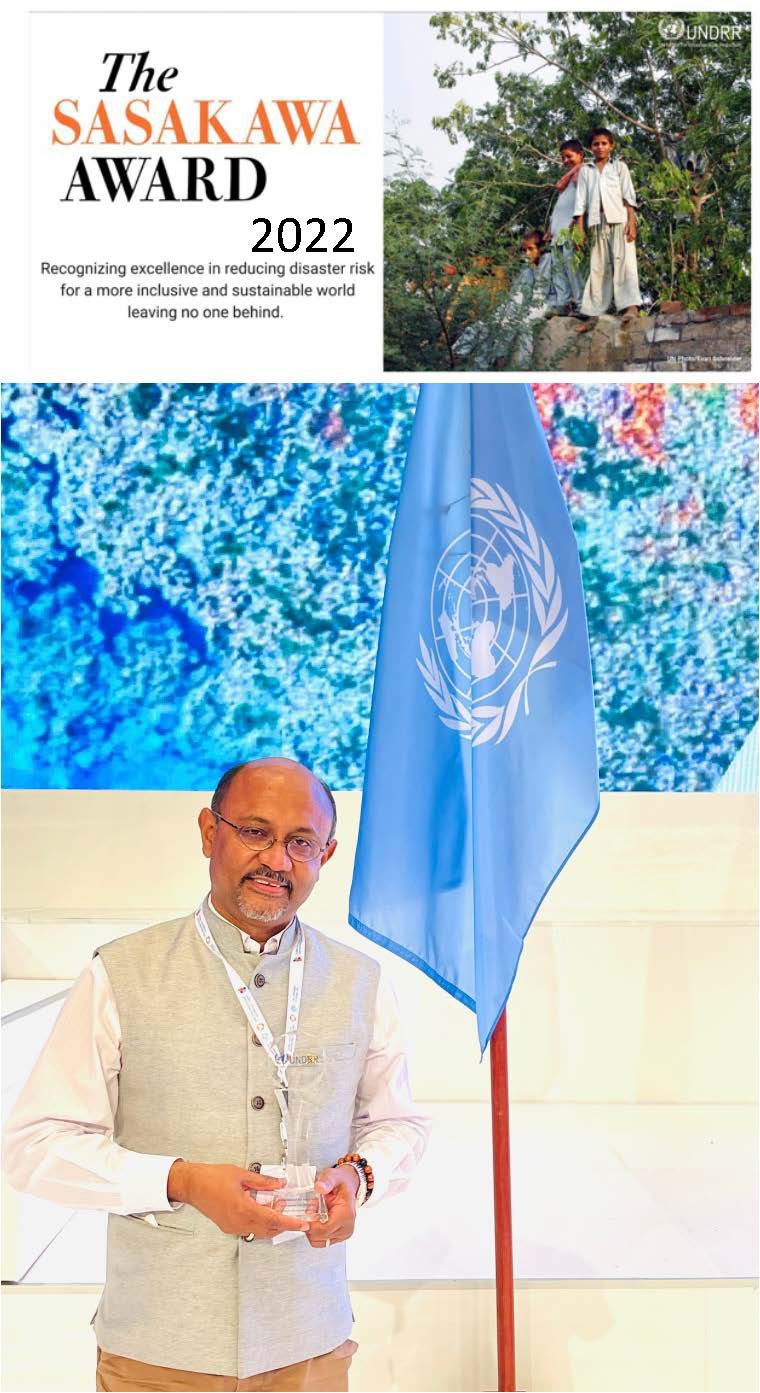Rajib SHAW
A Japanese national of Indian origin, Rajib Shaw is a professor in Graduate School of Media and Governance in Keio University, Japan. He is the co-founder of a Delhi (India) based social entrepreneur startup Resilience Innovation Knowledge Academy (RIKA), and RIKA Institute (A non-profit wing of RIKA). He is the Distinguished Professor in Indian Institute of Technology (IIT) Guwahati and Sichuan University in China. He is also the Senior Fellow of Institute of Global Environmental Strategies (IGES) Japan, and the Chairperson of SEEDS Asia and CWS Japan, two Japanese NGOs.
Earlier, he was the Executive Director of the Integrated Research on Disaster Risk (IRDR), a decade-long research program co-sponsored by the International Science Council (ICSU) and the United Nations Office for Disaster Risk Reduction (UNDRR). Previously, he served as a Professor in the Graduate School of Global Environmental Studies of Kyoto University.
His expertise includes community-based disaster risk management, climate change adaptation, urban risk management, and disaster and environmental education. He was the Chair of the United Nations Global Science Technology Advisory Group (STAG); and current Co-chair of the Asia Science Technology Academic Advisory Group (ASTAAG); and CLA (Coordinating Lead Author) for the IPCC 6th Assessment Report (Asia Chapter). He is the editor of a book series on disaster risk reduction, published by Springer. Prof. Shaw has
published 65 books and over 450 academic papers and book chapters.
Professor Shaw is the recipient of prestigious “Pravasi Bharatiya Samman Award (PBSA)” in 2021 for his contribution in education sector. PBSA is the highest honor conferred on overseas Indians and persons of Indian origin from the President of India.
Professor Shaw is also the recipient of United Nations Sasakawa Award for Disaster Risk Reduction in 2022 for his lifetime contributions in the field of disaster risk reduction. Sasakawa Award is the highest UN award for disaster risk reduction and was established by 1986 by the founding Chairman of the Nippon Foundation, Mr. Ryoichi Sasakawa.
Professor Shaw is the recipient of “Norio Okada Implementation Science Award 2022” from International Society for the Integrated Disaster Risk Management (IDRIM).



WORK EXPERIENCES
2017 April – onward
Keio University, Japan Graduate School of Media and Governance- Position:
- Professor Education and research in the field of disaster risk reduction and environmental management.
- Visiting Professor:
- Indian Institute of Management (2023 – onward)
- Indian Institute of Science (2023 – onward)
- Distinguished Professor:
- Indian Institute of Technology Guwahati (2022 – onward)
- Sichuan University (2018 – onward)
2015 December – onward
Institute of Global Environmental Strategies (IGES)- Position:
- Senior Fellow (Visiting position) Policy and action research and research advise/ supervision in the field of global environmental studies, environmental management, disaster risk reduction and climate change adaptation.
2016 July – March 2017
International Council of Science (ICSU)- Position:
- Executive Director, Integrated Research on Disaster Reduction (IRDR) International Program Office, Beijing, China Managing global multi-disciplinary research focusing on different dimensions of disaster risk reduction and climate change adaptation. The key focus is linking science into policy and action, and strengthen national science academy to conduct pro-active and implementation oriented risk reduction research.
2004 April – March 2017
Kyoto University, Japan Graduate School of Global Environmental Studies International Environment and Disaster Management- Position:
-
- Visiting Research Fellow [from April 2016 to March 2017]
- Adjunct Professor [from October 2015 to March 2016]
- Professor [from January 2014 to September 2015]
- Associate Professor [April 2004 to December 2013]
- Research Topics:
-
- Climate change adaptation at community level, and its policy implication to developing countries
- Urban risk management
- Disaster education
- Community based environment and disaster management: Countries worked on: Afghanistan, Bangladesh, Burkina Faso, Cambodia, Costa Rica, Fiji, India, Indonesia, Japan, Laos, Malaysia, Madagascar, Malawi, Myanmar, Nepal, Pakistan, Philippines, Sri Lanka, Taiwan, Thailand, Vietnam
1999 November – 2004 March
United Nations Centre for Regional Development (UNCRD), Kobe, Japan- Position:
- Researcher (April 2002-March 2004), Associate Expert (November 1999 to March 2002)
- Type of Work:
- Applied Research, Training and Project Management
- Major activities:
- Disaster Management and Planning, Community Participation and Development; Risk Assessment and Management. The main responsibility includes formulation of new projects through consultation with the different stakeholders in the member countries, project management and implementation through research and training and enhancing local capacities in multi-stakeholder environment. Liaison and collaborative work with other international agencies (UNU, UN ISDR, UNESCO, UNDP and ADB), and government and non-government organizations in Japan and abroad.
- Countries worked on:
- Afghanistan, Bangladesh, Cambodia, China, India, Indonesia, Japan, Mongolia, Nepal, Philippines, Turkey, Uzbekistan, Vietnam
2000 August – 2004 March
Earthquake Disaster Mitigation Research Center (EDM) National Research Center for Earth Sciences and Disaster Prevention (NIED), Miki, Japan [Concurrent position with UNCRD)- Position:
- Researcher
- Type of Work:
- Applied Research and Research Coordination
- Major activities:
- Coordination of a multi-lateral, multi-disciplinary research project for development of a Master Plan for Earthquake and Tsunami Mitigation in the Asia and Pacific region, funded by the Government of Japan. Research work related to the development of International Strategy for Earthquake Disaster Mitigation. Involved in the post-disaster reconstruction program in both research and training perspective.
- Countries worked on:
- 14 countries and economies in the Asia and the Pacific region, with special focus on the East and Southeast Asia.
1997 – 1999
OYO Corporation, Tokyo, Japan- Position:
- Chief, Technical Department
- Type of Work:
- Consultancy for Japanese ODA (Official Development Assistance) with prime emphasis on Japan International Cooperation Agency (JICA)
- Major activities:
- Consulting work in the field of Disaster Prevention, Mitigation and Management; Geographic Information System (GIS); Environmental management; Geotechnical and Geological Survey. The major responsibilities include the project formulation for Japanese ODA through consultative interaction with the government officials in the developing countries, and consulting services for the international agencies (United Nations International Decade of Natural Disaster Reduction: UN IDNDR, UNESCO) and Japanese private enterprise
- Countries worked on:
- Azerbaijan (February-March 1998), China (February 1998 – August 1999), India (July – August 1997, April – August 1999), Indonesia (February 1998– August 1999), Nepal (February 1998, April – August, 1999), Philippines (February – August, 1999), Thailand (June 1997, December 1997, February 1998), Turkmenistan (January – February 1998), Uzbekistan (February 1998– August 1999)
